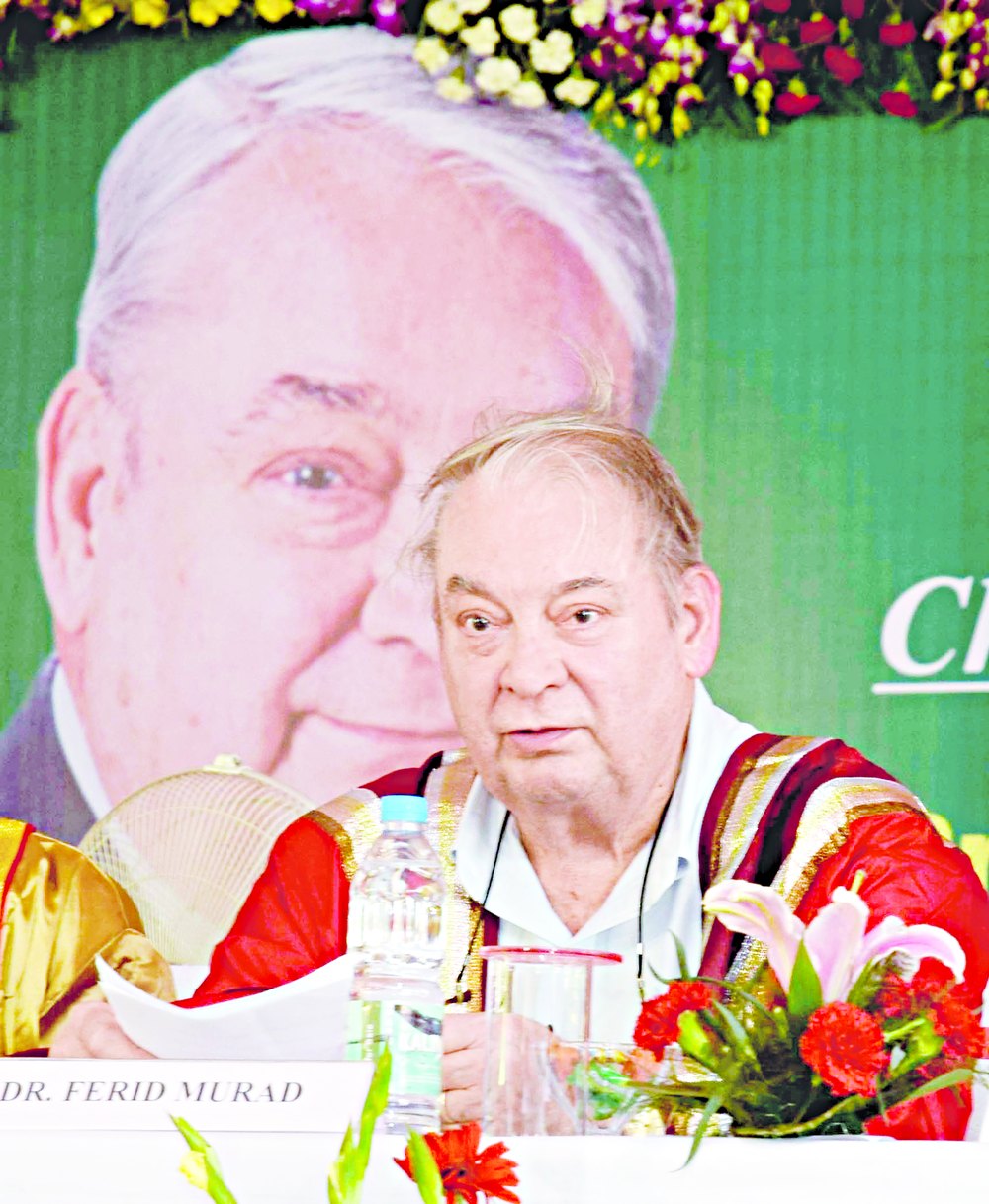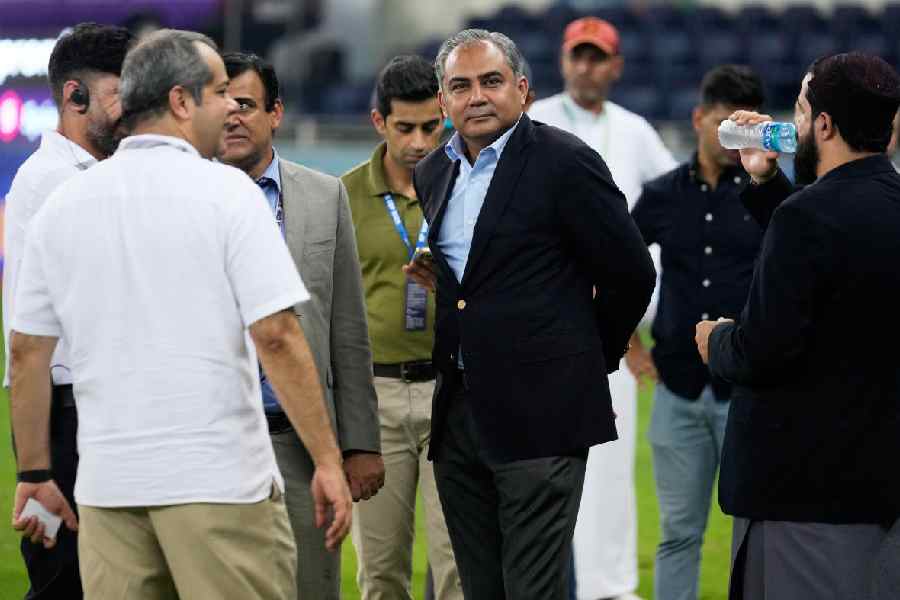
Ferid Murad at the KIIT University convocation in Bhubaneswar on Saturday. Picture by Sanjib Mukherjee
Physician and pharmacologist Ferid Murad, co-winner of the 1998 Nobel Prize in Physiology or Medicine, was in the city to attend the tenth annual convocation of the KIIT University. He spoke to Priya Abraham of The Telegraph
In which emerging areas of medical research should India invest?
The best thing India can do is to invest in removing poverty from the country. Second, it must invest in cleaning up all the trash and educate the poor. India is not going to compete with the world for a while so far as medical research and science is concerned .
What is the reason that new viruses such as Ebola, unheard of before, are surfacing every now and then?
Farmers have been feeding too many antibiotics to their chickens, cows and pigs creating resistant organisms. The viruses have become clever too.
Your advise to students...
The students must prepare themselves for their career choices. The changes and advances in science, technology, and medicine are rapidly increasing. Who would have believed 30 years ago that we would have cell phones that we can now wear on our wrists? This is truly an exciting but complex time. Technology is changing, and this will continue. You can be sure that scientific research and medicine practised in the next 20 to 30 years will be quite different from what it is today. It is important to make the right career choices to prepare yourself for the inevitable changes that will occur.
Mantra of success...
First, establish your long-term goals as soon as you can, and continue to re-evaluate them periodically. Ask yourself important questions such as 'What do you want to do the rest of your life?' Second, work hard to attain your goals. This will require determination and persistence, as well as overcoming disappointments and setbacks. Third, be patient and take the time to train and prepare yourself for that career. One's income and quality of life clearly correlate with the amount of his or her level of education and training. Fourth, select a career path that is challenging and rewarding but also provides enjoyment. You must have fun and enjoy going to work. Fifth, use your family, friends, teachers and mentors as a support network and attempt to return something of significance to the society. Leave a big 'footprint' and some recognition of your work.
How did you come up with the Nobel Prize winning discovery?
About 40 years ago, when I was on the medical faculty at the University of Virginia, I continued my interest in how hormones and drugs were regulating cellular functions - how cells communicate with each other. We discovered that nitric oxide, a toxic gas, and a known pollutant released from smoke stacks and automobile exhaust, has important biological effects. In the process of studying this biological information transfer process that we call cellular signalling, we learned that some drugs, which had been used for 100 years, produced their effects to dilate blood vessels and relieve chest pain by releasing nitric oxide and increasing the formation of another messenger molecule, cyclic GMP. We proposed that these substances, nitric oxide and cyclic GMP, functioned as intra-cellular messenger molecules to mediate the effects of various drugs and hormones leading us to the discovery.
How has your research influenced health care?
We know that nitric oxide plays a role in many biological processes. More than 150,000 publications have appeared since our discovery of nitric oxide's biological effects in 1977. The research has become one of the most popular areas in biology with more than 70 biotechnology companies and most multinational pharmaceutical companies with research programmes in nitric oxide. Many drugs have been developed and many more are in clinical trials. Our research has influenced the healthcare of millions of people.










